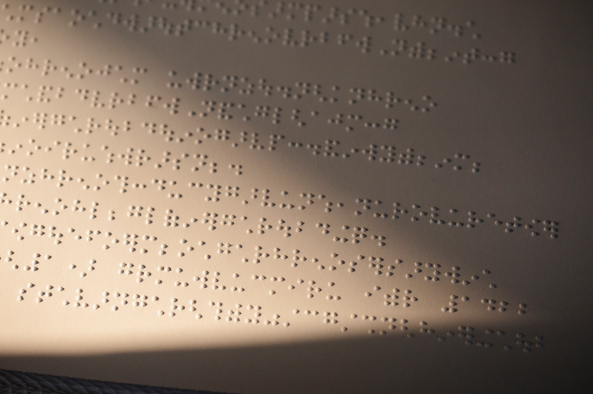
By Professor Graeme Douglas, Department of Disability Inclusion and Special Needs
School of Education, University of Birmingham
“Louis Braille invented his eponymous code nearly 200 years ago. The tactile reading and writing system has transformed the lives of many blind people. More recently, computers and the internet have introduced new opportunities for accessing precious information. Braille, along with technology, independence and mobility skills, forms a part of the important specialist additional teaching received by children with vision impairment in UK schools. If Louis Braille was alive today, he would embrace it all!”
World Braille Day marks Louis Braille’s birthday. Born in 1809, he invented the braille code. Braille is a tactile reading and writing system used by many people with severe vision impairments or blindness. A braille character is based upon a matrix of six raised dots, historically embossed on paper. Different combinations of these dots represent an individual letter, letter combination or word. Louis Braille was blind himself and first proposed the idea while still at school. The braille code has had a profound impact upon the education of people with vision impairment around the world.
In recent years the emergence of computer technology has raised questions about the future of braille. Some people wonder whether we need braille now that computers and mobile devices can provide speech output. Research from the Vision Impairment Centre for Teaching and Research (VICTAR) shows that technology and braille are allies rather than competitors. This is beautifully articulated by Ryan Lardner-Cameron who recently undertook a work experience placement at the University. In his article, written with my own hand: me and braille, Ryan explains how technology and braille play a vital part in his education and life.
Our Longitudinal Transitions Study has gathered the experiences and views of young people with vision impairment as they leave school to go on to college, university and the labour market. The research findings were presented at the ‘Lost in Transition’ conference and highlight the hugely important role education plays in preparing young people for independent living, in the use of technology and braille, and being able to advocate for themselves. The resources and campaigns that have come from the research are having sustained impact. One such area of impact is upon the training of specialist teachers. As in many countries, in the UK teachers are required to have a specialist qualification to teach children with vision impairment. The University of Birmingham has a long established training programme for teachers, and the focus is upon developing professionals who contribute to an education system which empowers young people with vision impairment – and this includes developing young people’s independence and the teaching of mobility, technology and braille.
In a recent development, VICTAR have undertaken national consultation to create a curriculum framework for vision impairment education. This framework will define the distinctive skills required by learners with vision impairment – it will help educators, parents and children themselves communicate more clearly about education. The team will be launching the findings in spring 2022, but braille remains a key part of the educational toolkit.
Louis Braille and his code remain a potent symbol of disabled people’s independence and empowerment. If the brilliant Louis Braille was alive today he would be reading braille with skill and enthusiasm while at the same time surfing the web, marvelling at the information he would literally have at his fingertips. He would also be eloquently campaigning for education services to provide young people with the specialist support they need.
- Find out more about Professor Graeme Douglas at the University of Birmingham
- Find out more about the Department of Inclusion and Special Needs (DISN)
- Find out more about the Vision Impairment Centre for Teaching and Research (VICTAR)
- Back to Social Sciences Birmingham
